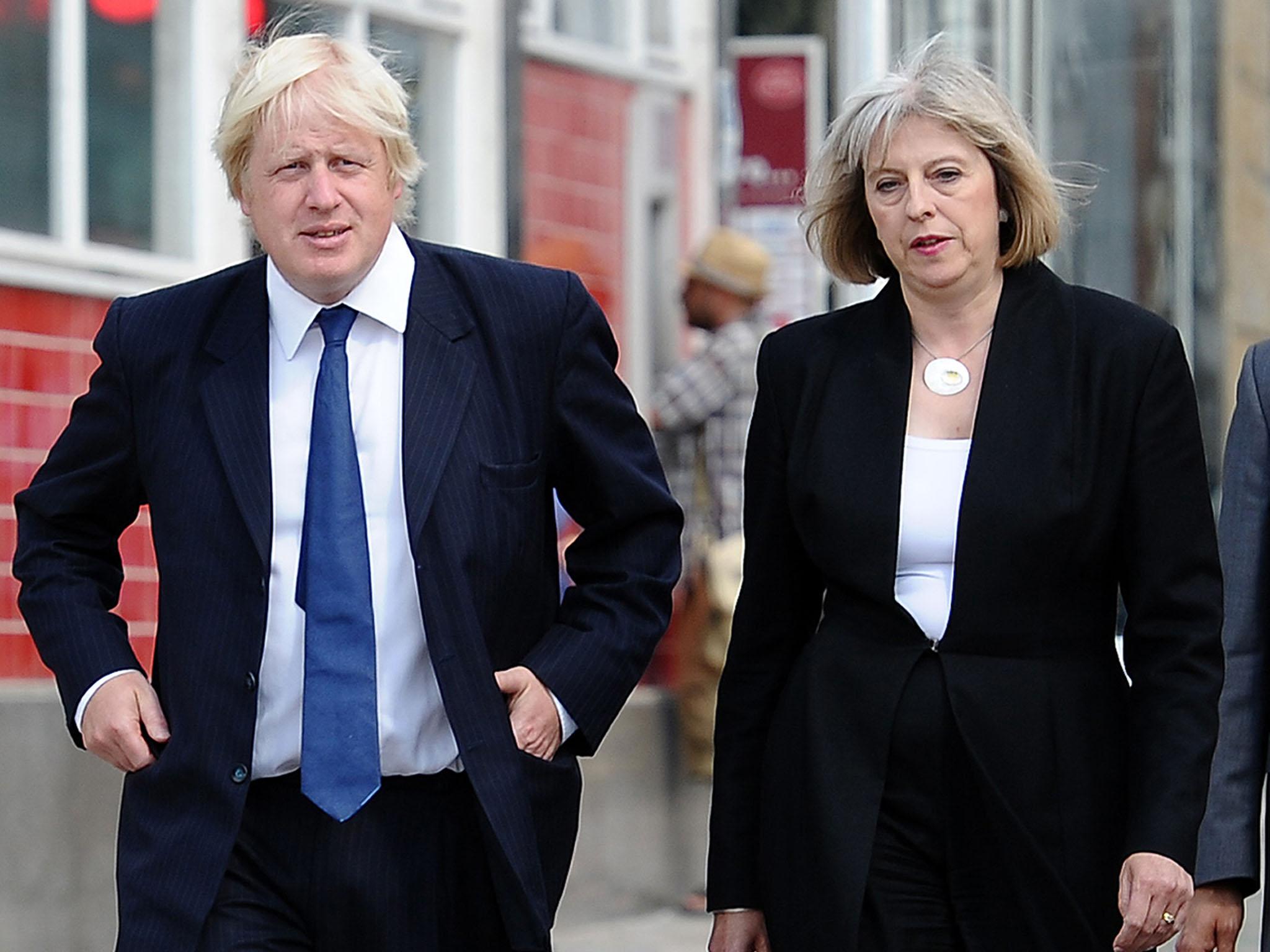Brexit won't save Britain from the EU's looming crisis – so why doesn't Theresa May have a plan in place?
Quite apart from negotiations on the Brexit deal, the affairs of the European continent are affairs in which our vital national interests are at stake


Your support helps us to tell the story
From reproductive rights to climate change to Big Tech, The Independent is on the ground when the story is developing. Whether it's investigating the financials of Elon Musk's pro-Trump PAC or producing our latest documentary, 'The A Word', which shines a light on the American women fighting for reproductive rights, we know how important it is to parse out the facts from the messaging.
At such a critical moment in US history, we need reporters on the ground. Your donation allows us to keep sending journalists to speak to both sides of the story.
The Independent is trusted by Americans across the entire political spectrum. And unlike many other quality news outlets, we choose not to lock Americans out of our reporting and analysis with paywalls. We believe quality journalism should be available to everyone, paid for by those who can afford it.
Your support makes all the difference.The Conservative claim in this election is that they are the only party that is serious on foreign policy and defence. Beyond Brexit, however, they have no foreign policy to speak of and on defence they represent a mismatch between stated ambition and allocated resource. The chances that they will leave Britain vulnerable and severely diminished on the post-Brexit world stage are increasing by the day.
We are asked to believe three propositions in what might be described as the May-Johnson doctrine, namely: that our departure from the EU will usher in a new global Britain; that Britain is emerging as the world’s leading champion of free trade; and that although we have decided to leave the EU we are not leaving Europe and will remain fully engaged in its affairs. It is worth examining each of these in turn.
As evidence of our renewed global role, Boris Johnson points to the future possibility of British aircraft carriers being deployed to the Malacca Straits and to a wider British military return East of Suez. But since 2010 the navy has been decimated and the Royal Marines are being cut. The Army has been reduced from 120,000 personnel to under 80,000. It is widely rumoured that even that target will be reduced. The air force is over-stretched on operations in Iraq and Syria. Thousands of experienced war veterans are leaving the forces too early and recruitment targets are being missed. And it is an open secret that the hole in the defence budget is only growing bigger. The Foreign Secretary can’t claim a global strategy will be based on soft power either because the FCO budget has been slashed and much of what is left is being consumed by Brexit.
The Prime Minister’s claim that we’ll be the world’s leading champion of free trade is equally unpersuasive. The UK represents only around 3 per cent of global trade. It would take a feat of diplomatic genius to turn ‘championing’ into any meaningful influence. At the meeting of G20 finance ministers in March, despite Theresa May’s insistence that the meeting had been a great diplomatic success, the traditional anti-protectionist clause was dropped from the communique at American insistence. The Prime Minister can and should continue to make the case, but we shouldn’t count on the rest of the world listening.
Instead of these attempts to perpetuate a post-imperial fantasy, what we need is a period of strategic reflection on the remaining diplomatic assets and relationships we have; an assessment of the value of those assets and relationships in relation to goals of the highest national priority; and a diplomatic strategy designed to fill the gaps. The FCO also needs to conduct a serious examination of how other middle ranking and even small powers sometimes use imaginative approaches to achieve influence far in excess of their weight. Churchill was right when he said the only thing worse than having to work with allies is not having any. Since we’re stepping back from some it would be a good idea not to step back too far while developing new alliances with others.
In Europe, to the extent that the government has focused on European affairs at all, it has been entirely consumed with the short-term tactics of the Brexit negotiations and not with the long-term geo-political challenges that are unfortunately all too real. While this might be understandable given limited political and policy-making capacity, it is still strategically inept.
Macron’s victory is certainly a welcome reprieve for all who want to see a stable Europe. But the EU remains in deep crisis. Member states are divided over how to respond to migration and terrorism. The entire integration project remains vulnerable to widespread Eurosceptic political revolt. And the single currency is vulnerable to another recession: a recession in which neither the German public would be willing to support more bail-outs nor the southern European public willing to suffer more austerity. A recession too, which the failure to secure a Brexit deal, or the potentially negative effects of Trump administration policy on world trade, could help to trigger.
This is the stuff of which history is made. Quite apart from negotiations on the Brexit deal, the affairs of the European continent are affairs in which our vital national interests are at stake. Another Euro crisis could produce sovereign defaults, bank collapses, and a European depression. It could put new wind in the sails of an intolerant, nationalistic politics with the potential not only to destroy EU solidarity but to weaken the underlying political fabric of Nato.
Against this backdrop, the Tories not only have no vision for how they want to see wider Europe develop but no plan to influence its course.
What we need is a step-change in bi-lateral relations with all the major powers on the European continent. We need a ramping up our diplomatic engagement in institutions like the Council of Europe, Nato, and the OSCE to try to compensate for the diplomatic loss of a seat at the European Union table. And we need to salvage as much of the cooperation we already enjoy with the EU on foreign and security policy matters as possible.
Over the years, both main political parties have some foreign and defence policy achievements to be proud and both have made their mistakes. The Tories, it seems, now want to claim a monopoly of wisdom. Their claims are hollow. Labour will take no lectures from a government apparently endowed with no strategic wisdom at all.
Join our commenting forum
Join thought-provoking conversations, follow other Independent readers and see their replies
Comments